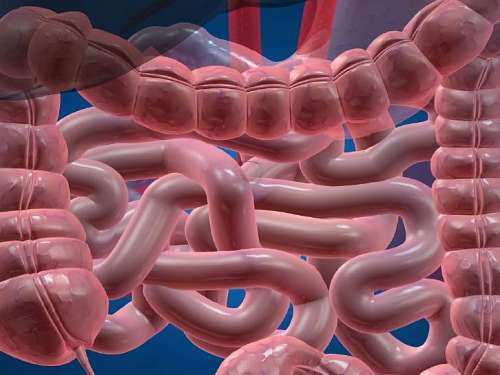Healthy Digestion
Post details
Posted on 27th July 2015

The importance of having a healthy digestive system is a much overlooked subject when it comes to health. However, due to some recent extensive research that has looked at the effects of poor digestion on your overall health, the experts are beginning to identify your digestion as being one of the most important factors in determining the level of vitality of your body.
We have all heard the saying "You are what you eat" but in reality its more accurate to say "You are what you absorb". Without good digestion you'll struggle to absorb the important nutrients we should be obtaining from our food. Even if you're eating the most amazing diet full of organic, highly nutritious whole foods, if you can't properly break that food down into a manageable size you won't be able to enjoy the benefits of eating such a desirable, nutrient-rich meal.
If your digestive system is damaged, you run the risk of suffering from what is commonly known as 'Leaky Gut Syndrome' where all sorts of undigested food particles get through the lining of your digestive tract and into your bloodstream. The problem then is that because your body doesn't recognize the food in its appropriately sized, broken down molecules of amino acids, monosaccharides and fatty acids, your body considers these larger undigested particles of food as being some form of pathogen. The immune system is activated to attack the potential invader, causing an inflammatory response which can result in bloating, pain, discomfort and it can even shut down the muscles around your abdomen meaning you can say goodbye to your six pack. Furthermore, poor digestion can lead to unwanted bugs and bacteria getting into your body causing all sorts of other problems and further worsening your ability to breakdown food. This can then lead to food allergies and previously unexplainable symptoms.
So what can cause poor digestion I hear you ask ? Well there a number of things that can damage the gut lining and disrupt the process of digestion in your stomach and intestines:
- Pre-cooked or pre-prepared foods containing preservatives, flavouring, colouring, sweeteners, stabilisers and emulsifiers (added to make products 'more appealing'!)
- Commercially farmed vegetables, fruit and meat that contain copious amounts of chemicals in the form of fertilisers, pesticides, fungicides and anti-biotics etc
- Processed refined (even gentically modified) foods like sugar, grains (like wheat), pasteurized dairy and
- soy
- Dehydration
- Stress
- Alcohol
- Medical drugs like anti-biotics
Although this is an unpleasant, undesirable topic the best indicator of poor digestion is your poop ! If you find you're constipated or that your stools are often loose then it could well mean that your digestive system is not functioning optimally, your bowel is fast becoming toxic and your liver is overworked trying to remove all the unwanted chemicals and pathogens from your body. Other symptoms include gas, bloating, abdominal pain, indigestion and even back pain due to the deeper inner unit abdominal muscles being switched off leaving the spine 'naked', unstable and vulnerable !
Who'd have thought that the niggling back pain you've been experiencing for the last couple of years, despite religiously following a corrective exercise programme, has been caused by what you've been putting in your mouth every day !? Maybe Hyppocrates was right and food is thy medicine after all ? Equally so, the wrong food or 'food-like products' could be causing all sorts of symptoms that you've just 'dealt with' for most of your life.
Your digestive system affects your immune system and your nervous system which affects your muscular system which affects your skeletal system and so on ....
I've said this many times before; your body is a system of systems, each of which rely on the optimal function of the others, meaning they are all inter-related, synergistic and co-dependent upon each other.
This is one of the reasons why your diet and lifestyle is so important to your physical fitness and why the holistic approach is the only true way to get real results in the gym ! ...
5 Simple Steps to Improved Digestion:
- Stay hydrated (drink 0.033 litres of filtered water per Kg of body weight everyday !)
- Predominantly only eat organic wholefoods free from chemicals
- Cook and prepare each and every meal yourself using lots of fresh, enzyme rich and raw vegetables
- Try eating fermented foods like saurkraut (fermented cabbage) to feed the bacteria in your intestines that breakdown your food
- Use probiotics to improve the number of 'good bacteria' in your gut
Book your session now
Call us or send us a message to book a session at BodyGuards.
Book nowMore blog posts
-
Single Leg Glute Bridge
Posted on 4th October 2020
Benefits of the single leg glute bridge
-
Plank Plate Presses
Posted on 2nd October 2020
Combine core activation and shoulder stabilisation in one movement
-
Elevated Heels for the Romanian Deadlift
Posted on 30th September 2020
Elevating your heels will alter the emphasis on key muscles when performing this exercise
